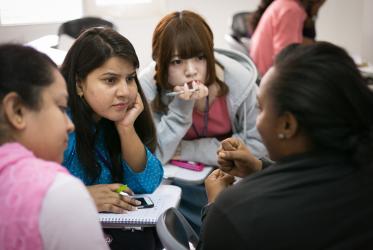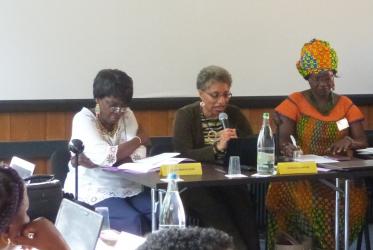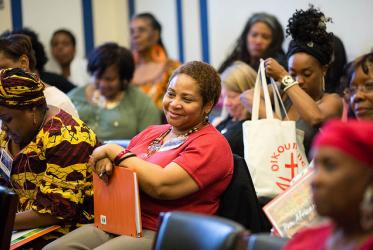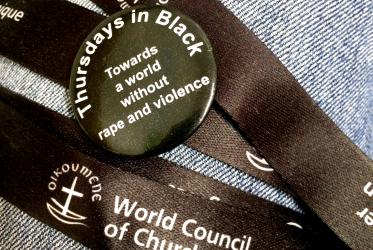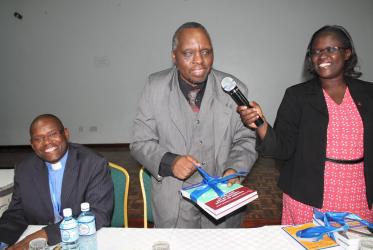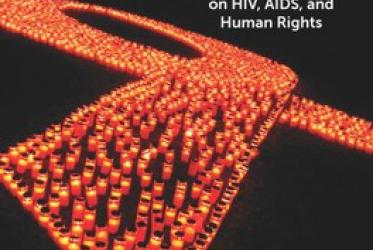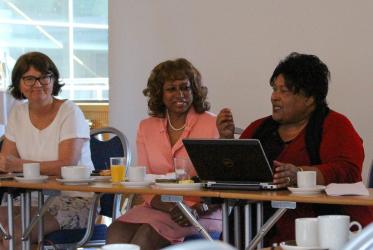Displaying 101 - 120 of 173
"We have our work cut out for us"
10 August 2017
A safe space for sinners to change and for pain to be shared
03 August 2017
"Church has huge responsibility empowering women"
26 July 2017
Applications open for WCC Eco-School
10 May 2017
New theological materials offer fresh perspective on disabilities
08 December 2016
WCC climate change group plans advocacy strategy
10 October 2016
WCC book featured in UN discussion on gender, religions and health
16 September 2016
In Ghana, women bring open minds, honest words
05 July 2016
WCC conference explores ecological injustice in Uganda
21 April 2016


